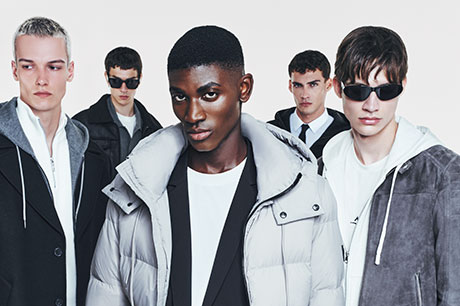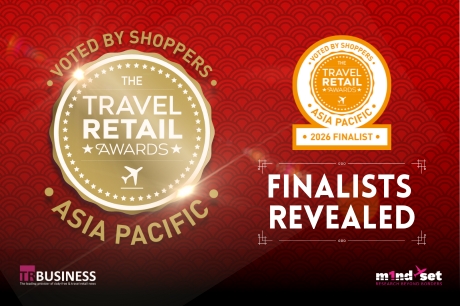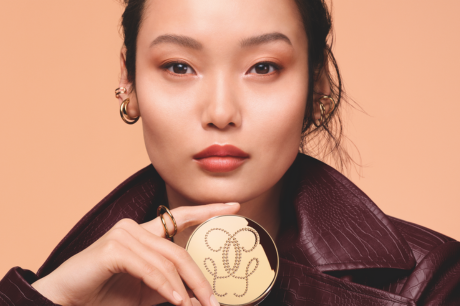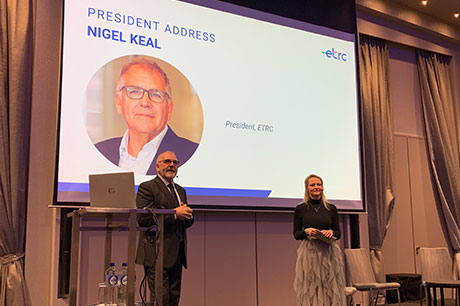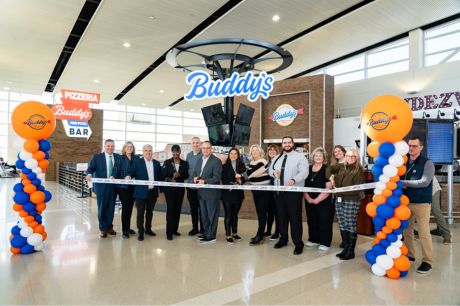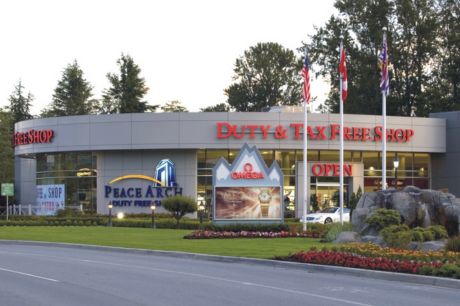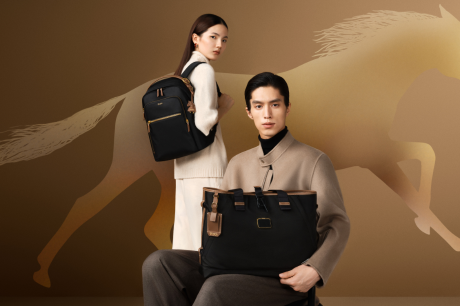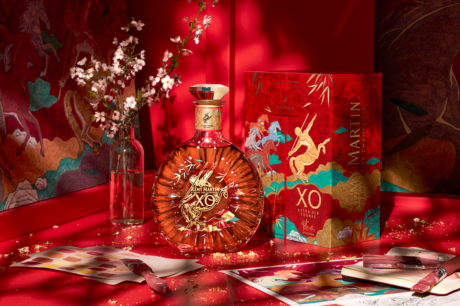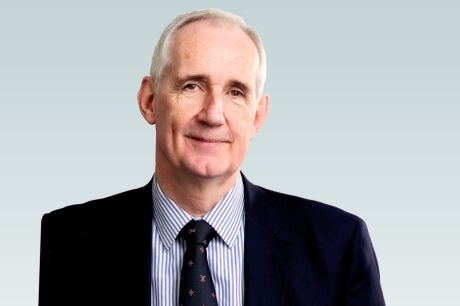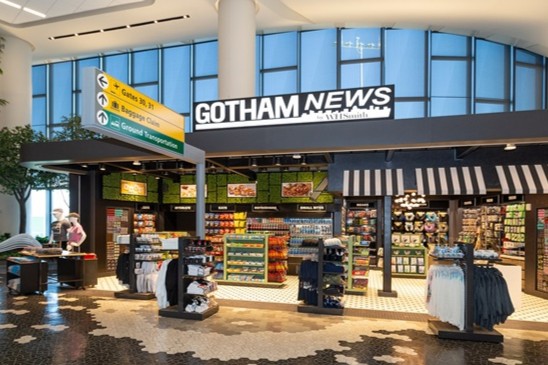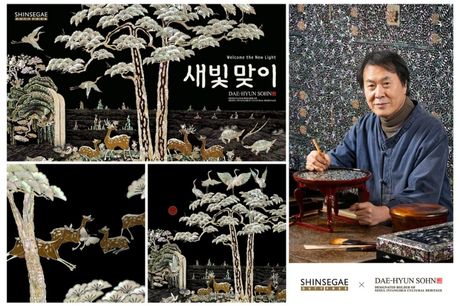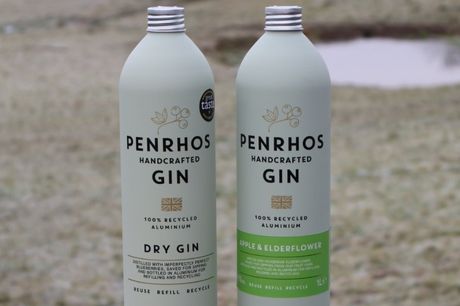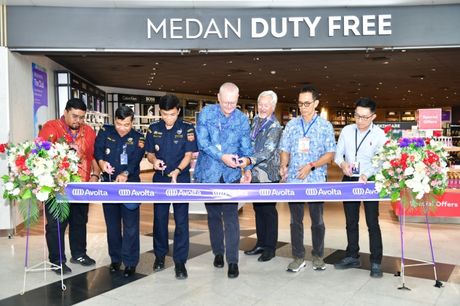Sue Gosling, Harding+: ‘As an industry, we share accountability’
By Kristiane Sherry |

Harding+’s Sue Gosling is advocating for collective accountability when it comes to sustainability in the cruise industry.
The cruise industry shares accountability for making environmental gains, with collaboration key to progress, Sue Gosling, Chief Brand and Culture Officer, Harding+ has said.
Speaking exclusively in a Q&A to TRBusiness, she stressed the importance of stakeholders working together.
“Collaboration has to be key to making a significant enough difference,” Gosling stated.
She also said the business was “happy to share all of our insights and learnings on sustainable improvements with others for the betterment of their own contribution to the big picture”.
Gosling joined the Clean Green Seas panel at last month’s TR Sustainability Week, a series of live sessions and dedicated content devised to further the global travel retail’s sustainability ambitions (scroll to footer to view the full recording).
Read on for the full detailed Q&A…
TRBusiness: What are the new sustainable product lines and categories which Harding+ is integrating into the product portfolio?
Sue Gosling: In line with our company mission of ‘making every cruise better’, we see sustainability as key to our business, our customers, our partners and our teams. So, over the last few years, we have consistently introduced sustainable products into the full range of categories in our stores.
Some examples include reef-friendly suncare, bamboo toothbrushes, circular economy bracelets, recycled flip flops and recycled water bottles. We are also introducing an increasing number of eco-friendly brands across beauty, fashion, and jewellery, where their own purpose, business model, or sustainable improvement curve matches our goals. We are also focusing on improving the sustainable elements of any production process for the brand experiences we create on board.

Harding+’s Tech @ Sea concept on board Norwegian Cruise Lines
And one of our fastest growing categories is in pre-loved luxury items, where we give second lives to iconic brands in the accessories space, an offer we now have across 25+ different ships.
How is the selection process made and what are the criteria?
We don’t work to a rigid set of criteria for products, but we look for genuine commitment to sustainability according to the sector. For example, smart use of recycled or recyclable materials in manufacturing, the environmental footprint of any product, comparisons to other products in the sector and, probably most importantly, how they fit with our guest demographics and what they are thinking, looking for and supporting in improving their own individual footprint.
Part of sustainability is, after all, matching right levels of supply with demand and avoiding unnecessary wastage. And this is where our commitment to listening, and talking to more than 20,000 guests on wants, needs and mindsets with our data capture programme, helps us with attitudinal and practical levels of accuracy and improvement.
What due diligence is done to ensure products are not green-washing?
We always conduct an objective assessment of any sustainability claims, linked to market and sector best practice, looking for official accreditations or sustainable missions in play (for example, B Corp) and independent evidence from the supplier to back up their environmental and sustainability claims

The confectionery store concept with Arvia
What is the customer appeal of these products?
It’s mainstream. It’s no longer a fringe ‘eco’ range, or about limited range extensions but a deeper, wider expectation of sustainability claims across products.
A recent study (Feb 2023) of US retail consumers by Nielsen IQ found that 78% [of consumers] rated sustainability as important, with 60% saying they would pay more for a sustainable product.
And it’s not just the retail side – the whole cruise industry is making massive strides in addressing sustainability, from the fuels used, to reduction in fly-cruising and everyday operating practices on board (for example, towel changing), to their menus, excursions and bar services.
Sue Gosling: Looking at the ‘whole sustainability impact’
Sustainability is not just about ‘environment friendly’ or recyclable materials. How are you addressing wider sustainability, for example, pre-owned, responsible suppliers (Fair Trade or women-empowerment projects, disability-inclusive suppliers…)
We have quite a number of examples of this – and you’re right, it’s not just about being eco-friendly’. It’s about the whole sustainability impact and ‘making every cruise better’.
Aside from our growing preloved range that includes items from the likes of Gucci, Louis Vuitton, Chanel and Hermes, wider examples include adhering to the Kimberley process for all diamonds (to avoid conflict diamonds), and expanding into lab-created diamonds that create flawless jewels without any real world extraction process.
We’re also improving our brand experience and sampling approach by replacing plastic cups for liquor sampling with recyclable paper versions.

Harding+ has concepts on board Carnival Mardi Gras.
We’re partnering with Kallati (for example, with our gem bar on Iona) who are focused on the wider ethics and sustainability impact of their range, including reducing carbon emissions in manufacture, reduced and recycled packaging, and certified conflict-free jewellery.
Of course, there’s our participation in the TR Sustainability Forum.
How are you lowering the environmental impact of your supply chain?
We now require our suppliers to use recyclable packaging. We also focus on the reduction of onward packaging requirements – suppliers must deliver in predetermined pack quantities that match our onward delivery requirements.
And we are happy to share all of our insights and learnings on sustainable improvements with others for the betterment of their own contribution to the big picture. Collaboration has to be key to making a significant enough difference.
What about working practices?
We offer flexible working (for office teams this is hybrid working from home) to reduce carbon emissions from commuting and offer a better work-life balance to our teams. This is alongside an increasing focus on offering mental health support with a team of in-house mental health first aiders.
We have harnessed technology to introduce virtual ship visits – this reduces carbon emissions for our operations teams. Instead of driving or flying to a port we can conduct the majority of our tasks via live video links instead.

The jewellery space on board Arvia
Since 2021 we’ve only used recyclable materials for all our marketing and promotions, and we actively reuse and repurpose props across different seasonal campaigns and between ships.
We also encourage ideas from the office teams where they think we can make an improvement, as the collaboration word is important at every stage of making things better.
Can systems and smarter working initiatives optimise delivery and distribution impacts?
Our new Business Central and Dataviva systems have improved the efficiency of our warehousing and logistics operations, streamlining pick and pack, optimising pallet loadings and reducing our stock holdings due to faster throughputs
Minimising single-use
Return, recycle, reuse: how are you minimising single use non-recyclable materials across the supply chain?
It’s not just our suppliers. We are working on improvements with our own operations planning too. Examples include all our packaging materials now being recyclable, our systems allowing us to minimise re-packing requirements for onward deliveries to ships, and, for the last two years, the exclusive use of recyclable and heat-treated pallets across the warehouses
Harding+ has been investing in more sustainable operations behind the scenes for several years now; how have these evolved and how has the sustainable approach been embraced by and impacted the staff?
A key indicator of the importance of sustainability to Harding+ has been the creation of the dedicated Brand and Culture (B&C) function last year.
We as a business believe passionately in brand and culture, and sustainability is a key part of this culturally for our teams. Over 50% of our team are under 30, for whom sustainability is perhaps more of a generational given as a priority in life.

A Pandora boutique on board Norwegian Cruise Lines
A key part of the B&C team focus is about what Harding+ means, to the industry and to our teams. We have placed sustainability front-and-centre in our plans and strategies to build the brand, to help the team understand our goals, contribute to the planet’s betterment, and live our status as the number one cruise retailer by leading with smart improvements for the industry overall.
It’s not about bragging, or claiming to complete a journey, as it will never be complete and improvements can always be made. It’s about sharing progress, building pride and encouraging contributions and questions. Good culture is where smart questions come from, and these thoughts come from being open and encouraging, showing we have a commitment in which all can play a part. And we have had ideas that have sprung from good team thinking…
Can you share examples of sustainable operations?
We’ve been phasing out single-use shopping bags (and replacing them with more sustainable alternatives where they are still required). We’ve introduced and expanded our electric car charging points at our offices. Here, office-wide recycling improvements means that we now send zero waste to landfill. We’ve reduced internal emails to reduce the carbon footprint of each (a suggestion that came from a team member). We’ve saved 56,000 litres of water by introducing water monitoring devices in toilet facilities – another team suggestion. And, as already mentioned, we’ve introduced sustainable pallet wraps and recycled, heat-treated pallets.

Men’s lifestyle products with Arvia
What specific programmes or industry accreditations are you working to?
ISO14001 accreditation is currently in progress. This ensures our environmental management systems are effective and meet international standards. We have also recently embarked on a comprehensive carbon reduction plan, working with net-zero specialists Enistic. We have introduced an employee wellness programme, including the training of 15 mental health first aiders from within our team. And we’re currently working (internally and in consultation with like-minded retailers) on a wider sustainability accreditation, so watch this space!
The customer perspective
To what extent are end customers (in this case, passengers) driving investment by Harding+ into sustainable practices and solutions?
It’s not a specific ‘demand’ from customers, but it’s now a much wider expectation of ‘responsibility’. Sustainable brands and products are more and more of mainstream appeal and our customers are increasingly expecting this from the retail offer. And of course, our teams expect it too – we have a young team who see this as an absolutely mainstream requirement, which we have a duty to execute, as well as a desire.
How do you communicate your sustainable policies and practices to the customer?
As we are not a consumer facing brand, we don’t focus on communicating the sustainability credentials of Harding+ as such.
However, initiatives such as removing carrier bags and our pre-loved offering are communicated to the customer in a ‘face value’ way. There are no huge greenwashing claims, just showing us as a responsible on-board retailer with a genuine commitment to sustainability.

The Swarovski boutique on board Arvia
In terms of customer, response it has been overwhelmingly positive. Our pre-loved watches and fashion ranges are now on over 25 ships as a result. And, of course, we are always keen to communicate our sustainability credentials to our B2B partners who are cruise lines, brands and industry bodies. To this end we are reviewing all our corporate materials to share, inspire and collaborate across the board – from presentations to e-brochures, tender materials, internal communication newsletters and forums, and our website.
How does sustainability vary by cruise line?
The various cruise lines are at different stages in their sustainability journeys, but one thing is loud and clear: this is a number one focus for all of them.
Their operations are clearly very complex, but there is a universal commitment to lessen their environmental impact and develop truly sustainable models for the future of cruising.
I have no worry about repeating a key point here, which is the value of collaboration. We all have business challenges in this space, but as an industry we share accountability, and working together on sharing best practice is critical to what is globally important.
Antony Morato partners with 2.0 & Partners to expand TR footprint
Image Credit: Antony Morato Antony Morato has entered into a new collaboration with...
REVEALED: Travel Retail Awards APAC Finalists
Image Credit: TRBusiness TRBusiness and m1nd-set are thrilled to announce the finalists in the...
Guerlain unveils wide-ranging beauty and fragrance launches for 2026
Image Credit: Guerlain Guerlain is kicking off 2026 with a broad portfolio of launches...
-

-
 Sustainability,
Sustainability,REVEALED: Travel Retail Awards APAC Finalists
-


In the Magazine
TRBusiness Magazine is free to access. Read the latest issue now.

 Trbusiness. The travel retail Trbusiness. The magazine for global retail and duty free professionals.
Trbusiness. The travel retail Trbusiness. The magazine for global retail and duty free professionals.